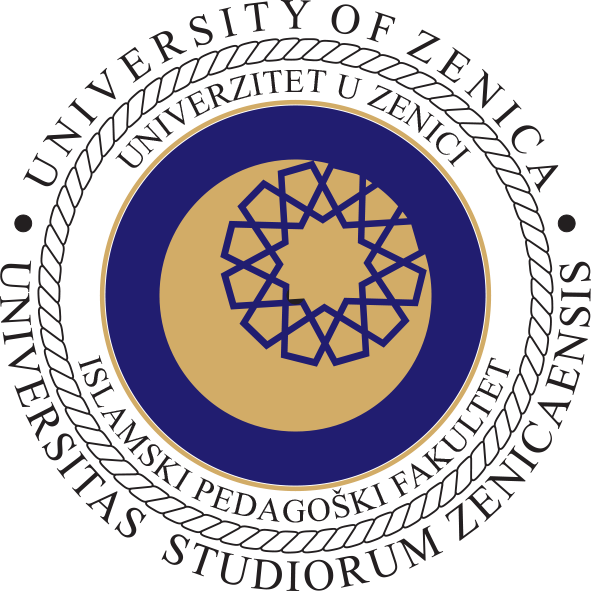SADNICA NA KRAJU SVIJETA: ISLAMSKO-EGZISTENCIJALNA ETIKA POZNATOG HADISA MUHAMMEDA, A.S.
U ovom radu analiziramo poznati hadis Allahovog Poslanika, s.a.v.s., koji glasi: "Ako nastupi Sudnji dan, a u ruci nekoga od vas je sadnica, pa ako je može posaditi prije nego što nastupi – neka je posadi." Ovaj naizgled jednostavni savjet nosi duboku simboliku moralne obaveze djelovanja bez obzira na ishod. Kroz islamsku teološ...
By Esmir Halilović
KASIDA MEHMEDA HANDŽIĆA O GAZI HUSREV-BEGU
Ovaj rad analizira kasidu Mehmeda Handžića posvećenu Gazi Husrev-begu, predstavljajući je kao književno i kulturno djelo u okviru orijentalno-islamske književnosti. Kasida je oblikovana u duhu klasične arapske poetske tradicije, prilagođene osmanskom i bošnjačkom kontekstu, te se odlikuje trodijelnom strukturom i bogatim stilskim sredstvima....
By Semir Rebrinja
SAVREMENI NAPADI NA BUHARIJEV SAHIH
Hadis kao drugi izvor islama nakon Kur'ana zajedno s njim čini osnovu islamske nauke. Dok Kur'an često iznosi opće smjernice, hadis detaljno pojašnjava pravila. Poslanik, s.a.v.s., prenosio je ove detalje na temelju Božanske objave. Otuda veliko interesovanje islamskih učenjaka za hadis, njegovo zapisivanje i valorizaciju. Mnogi od njih su s...
By Nihad Podžić
FENOMEN KUR'ANIZMA KAO IZAZOV HADISKIM ZNANOSTIMA
Kur'anizam predstavlja savremeni pokret koji zagovara ekskluzivno oslanjanje na Kur'an kao jedini izvor vjerovanja i šerijatskih propisa, uz djelimično ili potpuno negiranje autoriteta hadisa. Ovaj rad analizira fenomen kur'anizma kao izazova tradicionalnim hadiskim znanostima ali i savremenim muslimanima. U radu se objašnjava pojam k...
By Esmir Halilović
O UČENJU I TRAJNOSTI ARAPSKOG JEZIKA U PROSVJEĆIVANJU NARODA BOSNE I HERCEGOVINE
Njegovati kulturu sjećanja i ukazivati na važnost očuvanja tradicijskih vrijednosti koje baštinimo i koje nas u svakom smislu određuju, univerzalni su zadaci svake društvene zajednice, posebno njezinog obrazovnog sistema. Stoga je cilj ovog rada da u sažetoj formi i kroz prizmu viševjekovnog prisustva i kontinuirane upotrebe ar...
By Mejra Softić
PROVJERA PSIHOMETRIJSKIH KARAKTERISITIKE SKALE ŽALOVANJA ZA KUĆNIM LJUBIMCIMA (PBQ- PET BEREAVEMENT SCALE)
Cilj ovog istraživanja bio je ispitati psihometrijske karakteristike mjerne skale žalovanja za ljubimcima PBQ- Pet Bereavement Scale autora Hunt i Padilla (2006). Istraživanje je provedeno online u maju 2025. godine, uz saglasnost autorice originalne skale, a učestvovala su 122 ispitanika. Inicijalna verzija sa 20 čestica smanjena je na 16, u sklad...
By Aldina Leto, Anela Hasanagić
KA TEORIJSKOJ I ISTRAŽIVAČKOJ PERSPEKTIVI SOCIJALNE PEDAGOGIJE U BOSNI I HERCEGOVINI
Rad, ali i nastojanje koji su poduzeti izvan rada, predstavljaju uvertiru analiziranju stanja i perspektiva socijalne pedagogije u zemljama Evropske unije i Bosne i Hercegovine. S ciljem jednog konkretnijeg, jezgrovitijeg, ali i pragmatičnijeg i više informisanog zagovaranja za socijalnu pedagogiju u Bosni i Hercegovini, akumulacijom teorijs...
By Eldar Ćerim
UPITNOST POSTOJANJA BISKUPIJE U SREDNJOVJEKOVNOJ DRŽAVI BOSNI
Došavši u novu zemlju Južni Slaveni su zatekli određen vjerski dualizam pošto je to period razvoja kasnoantičkog kršćanstva, koje se nalazilo u fazi postepenog potiskivanja ilirskih, gotskih i dr. politeističkih kultova mahom naslijeđenih odnosno preuzetih još iz perioda predkršćanskog antičkog Rima. Taj hr...
By Ajdin Huseinspahić
IZVORI I DEFINICIJE NAČELA NUŽNOSTI U ISLAMSKOM PRAVU
Rad se bavi teorijom načela nužnosti (ḍarūra) u okviru metodologije islamskog prava (uṣūl al-fiqh), fokusirajući se na njegovo značenje, izvore, definicije i pravnu primjenu. Cilj rada je postaviti šerijatsku osnovu (te’ṣīl) ovog načela kao zasebnog pravnog dokaza te ukazati na njegov značaj u normiranju vanrednih situacija i savremeni...
By Senad Ceman
GOVORNE IGRE KAO INSTRUMENT PODSTICANJA RANOG GOVORNO-JEZIČKOG RAZVOJA DJECE
U ovom je radu istražena uloga govornih igara kao instrumenta podsticanja ranog govorno-jezičkog razvoja – artikulacije glasova, slušne pažnje, fonološke svjesnosti, rječnika, rečenice i vještine pričanja. Cilj istraživanja bio je ispitati mišljenja eksperata iz različitih oblasti o značaju, mogućnostima i ograniče...
By Delila Ramić, Amina Pehlić



